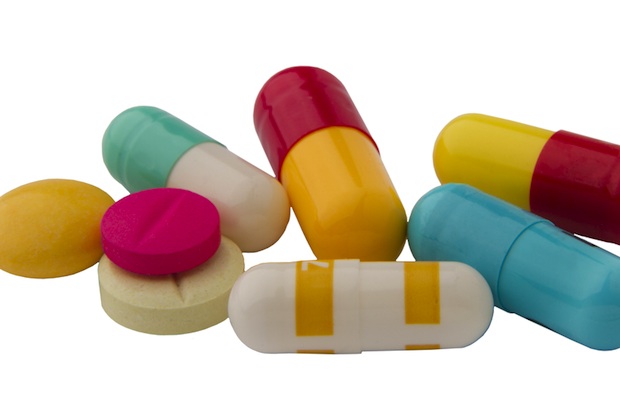There are obvious things we should do to stay healthy: eat a balanced diet, exercise, and do what makes us happy. But we are bombarded daily with new studies that tell us what not to do or that eating this or that is killing us slowly. So it’s always a bit frustrating for experts to see well-meaning individuals doing something to stay healthy that’s actually completely pointless. Read on for eight common things people do that contribute nothing to health.
1. Buy Brand-Name Medicine
You may think that extra $3 you’re forking over for brand-name medications is worth it, but you’ll get the same effects from generics—and save money to boot. They’re approved by the FDA, and have the same active ingredients, dosage, safety, strength, and quality as brand-name drugs. To see if there is a generic equivalent for your brand-name drug, visit Drugs@FDA.
2. Squat on a Toilet
You will not get a sexually transmitted disease from sitting on a toilet seat, since diseases can’t survive that long outside the human body. But that doesn’t mean the toilet seat is 100 percent clean. If the seat is noticeably dirty, don’t sit on it, or use those paper covers, if it will make you feel better. While bacteria is plentiful, the only way you’ll become infected is if there is an open cut on your behind.
3. Buy Only Organic Produce
A recent study published in the Annals of Internal Medicine found that organic produce has no more vitamins and minerals than conventionally grown produce. Dietitian Katherine Tallmadge says the main reason one should buy organic is environmental—organic produce is exposed to fewer pesticides. However, research is still minimal on whether pesticides at those levels actually cause harm. If money is an issue, you should be okay buying non-organic items, but until hard data is out, most experts say a mix of both is just fine.
4. Buy Raw Fruits and Vegetables
Same goes for raw produce. To cut back on costs and to keep your freezer stocked, consider buying frozen fruits and vegetables. They’re often healthier than raw foods, since they’re flash-frozen, which means they lock in nutrients at the peak of ripeness.
5. Drink Protein Shakes
Why take a supplement when you can get the nutrient from regular food? A 5.3-ounce container of Greek yogurt contains 15 grams of protein, while a cup of milk contains about 9 grams. Simply add one or both of those to a smoothie and you’ve got a tastier, real-protein shake.
6. Avoid Eggs
If you’re a healthy person and aren’t at risk for heart disease, then incorporating whole eggs into your diet is a great idea. Eggs are a great source of protein and vitamins A and D, and the yolk, which many tend to avoid, contains choline, which is a vital nutrient for brain development.
7. Drink Coconut Water
There’s nothing wrong with drinking coconut water; it’s a great replenisher for micronutrients. The problem is when you drink only coconut water after a grueling workout. The drink may work wonders for rehydration, but that alone doesn’t contain the mix of carbs and proteins you need after you exercise. You’re better off drinking chocolate milk instead.
8. Take Multivitamins
Just like with protein, we can get any vitamin or mineral from actual food. If you’re taking a daily multivitamin as a substitute for eating healthy, it’s not worth it. In fact, the American Academy of Family Physicians’ official stance is that for the general population, vitamin supplements are not recommended. Of course, each individual has his or her own health condition, so ask your doctor if you should take a vitamin supplement.













